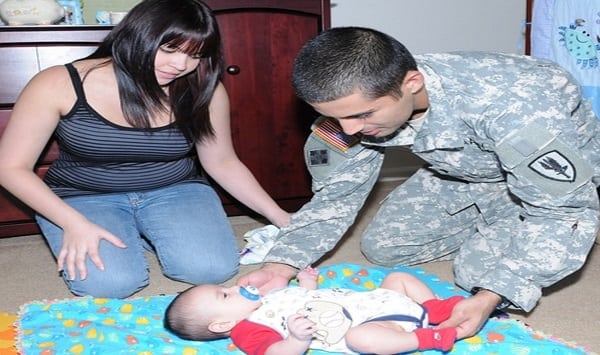Disable Vet’s Income Not Offered Any Protection in Bankruptcy – until now!
It only took 15 years, but Congress finally decided that disabled vets should have some of the same protection as those on Social Security.

In 2005 Congress changed how those on Social Security would be treated in bankruptcy, but ignored disabled vets.
The HAVEN Act, short for Honoring American Veterans in Extreme Need, fixed that loophole and ensured that veterans’ disability benefits could not be taken away by creditors. The Act was signed into law on August 23, 2019 and became effective immediately.
What was the problem?
Anyone seeking protection from their creditors face challenges if their income is above a specific limit (based on family size, residence, taxes, child care costs and other limited expenses). This is referred to as the “means test”. The goal for most filing for bankruptcy protection is to start their financial lives over, without the burden of high medical, pay day loans or old credit card debts. Income is based on all sources of “income”, but in 2005 Social Security was exempt from the means test. Congress forgot to include VA disability as an exception.
As a result of this error, hundreds of thousands of disabled vets were either forced into a five year repayment program (Chapter 13), or go without the protection of bankruptcy. Why is a five year repayment program burdensome? The means test limits what a family can spend on housing, utilities, food, schooling and other normal expenses (these limits are based on the IRS guidelines). Typically, a family of four can have $270 left at the end of each month to cover unexpected expenses – vehicle repairs, medical, schooling, etc. If they are in the Chapter 13 repayment plan, those living on a fixed income (like Social Security or VA disability) have no way of covering those unexpected expenses.
The HAVEN Act offers relief to those who have put themselves in harms way.
One woman whose family of six found itself in financial distress told Law360 that she expects the Haven Act will open new doors for them. Her husband, a former missile specialist in the Army, came home from the Gulf War with permanent loss of motion in his dominant hand and severe PTSD, preventing him from working. The VA gave him a 100% disability rating.
After making the tough decision to file for Chapter 13, but now can ask the Bankruptcy Court to modify their bankruptcy plan is officially approved, the family expects to save a total of $65,000. Their previous five-year repayment plan will be condensed into a three-year plan, and their monthly payments will decrease by $600. “Knowing now that we only have 36 months instead of 60 is huge,” the woman said. “We couldn’t have done it without the bill.”
Specific benefits protected under the HAVEN Act:
-
Permanent Disability Retired Pay
-
Temporary Disability Retired Pay
-
Retired or Disability Severance Pay for Pre-Existing Conditions
-
Disability Severance Pay
-
Combat Related Special Compensation
-
Survivor Benefit Plan for Chapter 61 Retirees
-
Special Survivor Indemnity Allowance
-
Special Compensation for Assistance with Activities of Daily Living
-
VA Veterans Disability Compensation
-
VA Dependency and Indemnity Compensation, and
-
VA Veterans Pension.
Again, this took 15 years and thousands of hours of hard work by those who cared enough to fix the error in the bankruptcy law.
Link to webinar – HAVEN Act of 2019, by the Academy
MUSINGS FROM DIANE:
 I am married to a disabled vet and I have never heard him ask for help, but he is always there for everyone else. The new law provides relief to a segment of the population that really needs our assistance. Nearly 15 percent of both Chapter 7 and Chapter 13 bankruptcy filers are veterans, who make up approximately 10 percent of the overall population. Approximately 125,000 veterans filed for bankruptcy in 2017 alone. According to the 2018 VA Annual Benefits Report, 4.74 million US veterans—or 25 percent of the total veteran population—receive VA disability benefits.
I am married to a disabled vet and I have never heard him ask for help, but he is always there for everyone else. The new law provides relief to a segment of the population that really needs our assistance. Nearly 15 percent of both Chapter 7 and Chapter 13 bankruptcy filers are veterans, who make up approximately 10 percent of the overall population. Approximately 125,000 veterans filed for bankruptcy in 2017 alone. According to the 2018 VA Annual Benefits Report, 4.74 million US veterans—or 25 percent of the total veteran population—receive VA disability benefits.
Diane is a well respected Arizona bankruptcy and foreclosure attorney. As a retired law professor, she believes in offering everyone, not just her clients, advice about bankruptcy and Arizona foreclosure laws. Diane is also a mentor to hundreds of Arizona attorneys.
*Important Note from Diane: Everything on this web site is offered for educational purposes only and not intended to provide legal advice, nor create an attorney client relationship between you, me, or the author of any article. Information in this web site should not be used as a substitute for competent legal advice from an attorney familiar with your personal circumstances and licensed to practice law in your state. Make sure to check out their reviews.*
In Case You Missed It
Published On: March 30, 2024
After 100 Years of Protecting Homeowners, Arizona's Law Changes to Give Creditors New Rights to Take Your Home Depending on the value of your home, creditors can now take it if [...]
Published On: March 24, 2024
Bankruptcy is a complex process that can have significant implications for your business and personal finances. Before considering business bankruptcy as an option for your struggling business, it's crucial to understand the potential pitfalls [...]
Published On: March 8, 2024
In today's consumer landscape, credit cards are the normal tools for managing finances and making purchases. However, having credit card debt can lead to financial stress and vulnerability to predatory schemes. Recognizing the importance [...]
Published On: March 7, 2024
The Arizona Supreme Court decided those living in motorized homes (such as motor homes and RVs) cannot protect their homes. The Arizona Supreme Court's decision In re Drummond, 23-0009 (Sup. Ct. Arizona, 3/7/24) bans [...]












